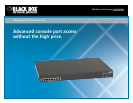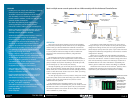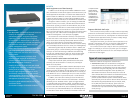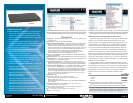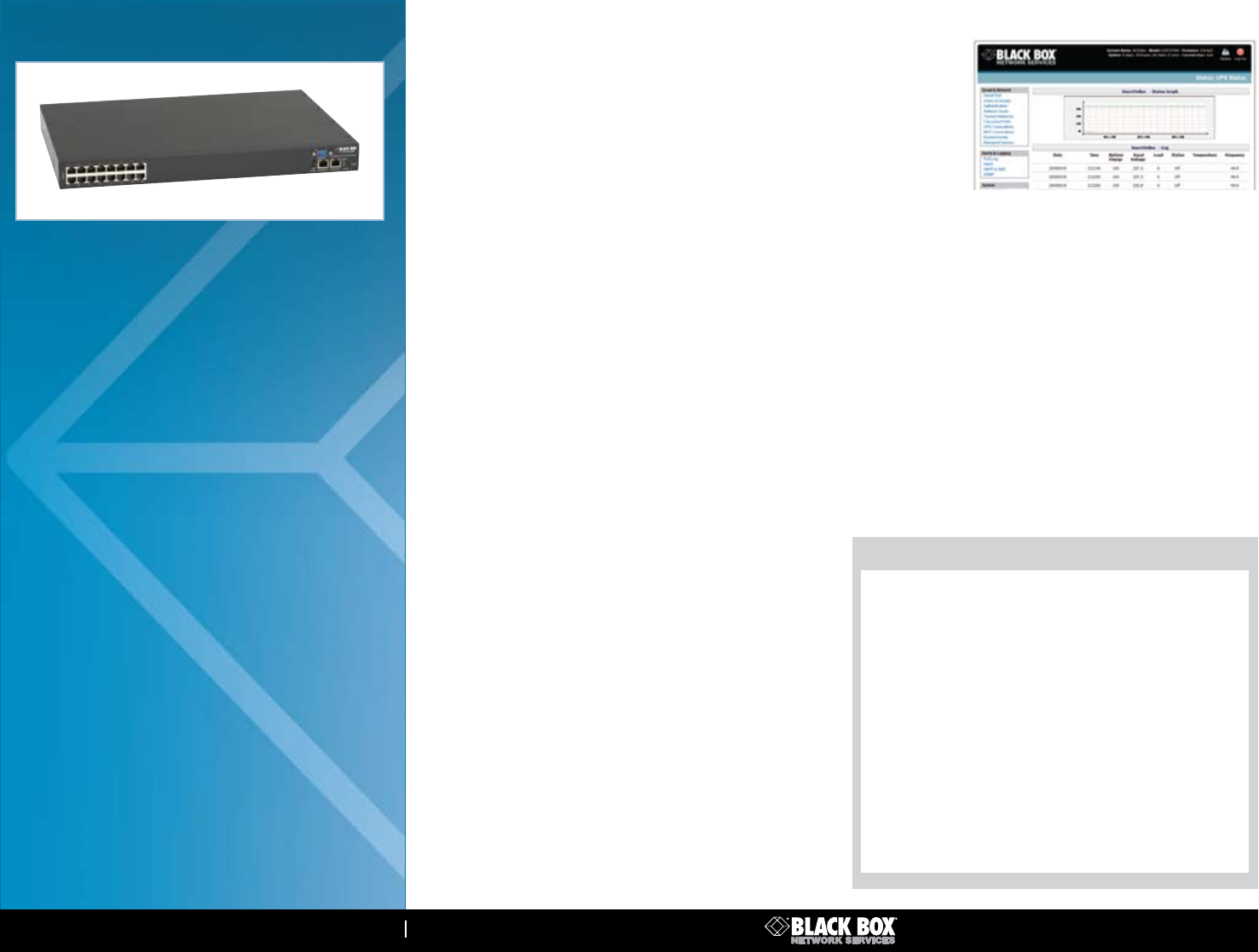
03/03/2010
#27070
724-746-5500 blackbox.com
BL A C K B O X
®
3 of 4
APPLICATIONS
In the data center, use Advanced Console Servers to:
» Simplify the management of computer,
telecommunications, and power equipment,
especially in large centers (those occupying
an entire floor or multiple floors in a building).
» Establish in-band and out-of-band management
that meets the entire data center’s local and
remote management needs.
» Better control power dissipation and make better
use of equipment space, especially in processing-
centric centers with row after row of racked
server clusters.
» Rigorously control access privileges, while
monitoring and logging all access events
to better enforce enterprise security policies.
In the SMB server room, use them to:
» Simplify the control of servers and gear racked
in a single room, especially in limited-staff offices
dealing with an expanding server count.
» Set up a single integrated gateway to locally
and remotely manage all serial- and network-
connected devices, particularly newer servers
with embedded service processors and baseboard
management controllers (BMCs).
» Set up encrypted authenticated access for local
and remote access.
» Enact better strategies for disaster avoidance.
IN DEPTH
Reach equipment out of band securely.
In addition to access through its dual 10BASE-T/100BASE-TX TCP/IP
ports, the Advanced Console Server supports out-of-band access to your
critical equipment and vital assets. The console server features both an
internal modem and a DB9 local console port. Use the internal modem
or attach an external modem via a serial cable to the DB9 port while
configuring the second Ethernet port for broadband out-of-band access.
Through the modem connection, you can manage your distributed
network of servers, Cisco
®
routers, and other devices with the latest in
console access. Typically, you do this via Telnet software, using an SSH
tunnel through the console server to communicate securely with serial
port-connected devices over the Internet or any other public network.
But you can Telnet through the console server to the serial device several
other ways, too. (See “LAN Console Port Management” and “Serial
Console Port Management” in the Tech Specs on page 4.)
The console server comes with SDT Connector, a free open-source
SSH Java client. Use it to auto-load your console server’s configurations
and, to ensure secure connectivity with attached network and serial
devices, set up SSH tunnels for port-forwarding communications
through the console server. The same SDT Connector is used for setting
up 10-/100-Mbps auto failover route to a remote, out-of-band gateway.
Advanced encryption keeps all connections secure. In addition, the
console server gives you a choice of filtering and access logging facilities,
which you can archive off-line using its USB flash. Store offline logs
for serial ports, available networks, and more. And to protect against
unauthorized access, the system enables you to restrict access by IP
address, password, or account.
Set up to scan the serial stream and send alerts.
To help ensure maximum uptime, the Advanced Console Server
proactively scans the serial stream on console ports, searching for
specific errors and phrases.
The console server supports SNMP and SMTP alerts/traps for serial
ports and hosts. Simply set the trigger condition for each port, and it
monitors port traffic for defined character stream patterns or phrases. If
they’re detected, the console server sends SMS text or an e-mail to you
or an SNMP server (or to a central Nagios server, if it’s used). This alerts
facility can be enabled on any and all serial ports or connected hosts.
In addition, the console server enables you to be informed of its
operating status. An LED on the back of the unit flashes a “heartbeat”
periodically, and its “heartbeat monitor” agent can trigger dial-back
or a redundant path during network outages. The heartbeat monitor
checks that the console server is on-line and operating as it should, that
it’s clear to send alerts and alarms, and is accessible by remote users.
You can set it up so if the heartbeat falters, it can automatically dial up
a remote site to raise an alarm, or switch to and activate a failover link.
LES1216A
Supports GNU bash shell script.
Some console port-access products in today’s market use proprietary
protocols for communications. However, the Advanced Console Servers
give you access to the Linux core, including bash. This makes them ideal
for industrial control applications where you need to remotely manage
proprietary equipment with custom protocols.
Through the Linux kernel, you can write custom scripts that can run
manually or automatically. This way, you proactively create self-healing
solutions for cycling power on a router or switch on PING failure.
You can write custom scripts so they run each time a particular alert
triggers. For example, you can set it up to power cycle on a managed
device when a specific alert event occurs or to send multiple notification
e-mails when an alert triggers.
Types of users supported
Advanced Console Servers support two classes of users:
• Administrative users, who are authorized to configure and
control the console server, and to access and control all the
connected devices. An administrator can access and control the
console server using the config utility, the Linux command line,
or the browser-based management console. By default, the
administrator has access to all services and ports to control all
serial connected devices and network-connected devices (hosts).
•Membersoftheusers group, who are only authorized to
perform specified controls on specific connected devices. When
authorized, they can access serial or network devices and control
these devices using the specified services, for example, Telnet,
HTTPS, RDP, IPMI, Serial over LAN (SoL), power control. An
authorized user also has a limited view of the management
console and can only access authorized configured devices and
review port logs.
A simple browser-
based interface
gives you an easy,
intuitive way to
consolidate the
management of
hundreds of ports
and UPS systems
over a single IP
connection.



